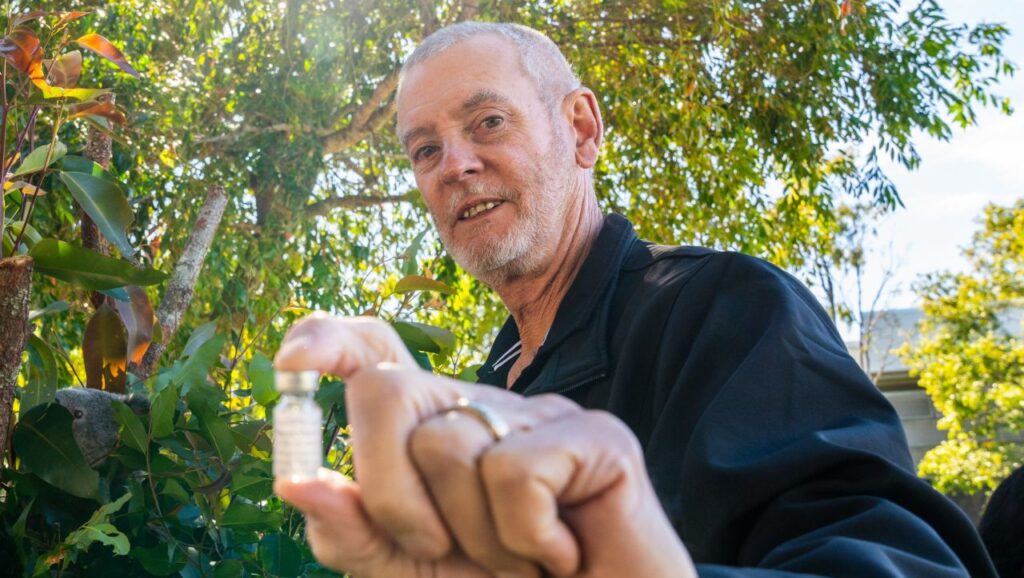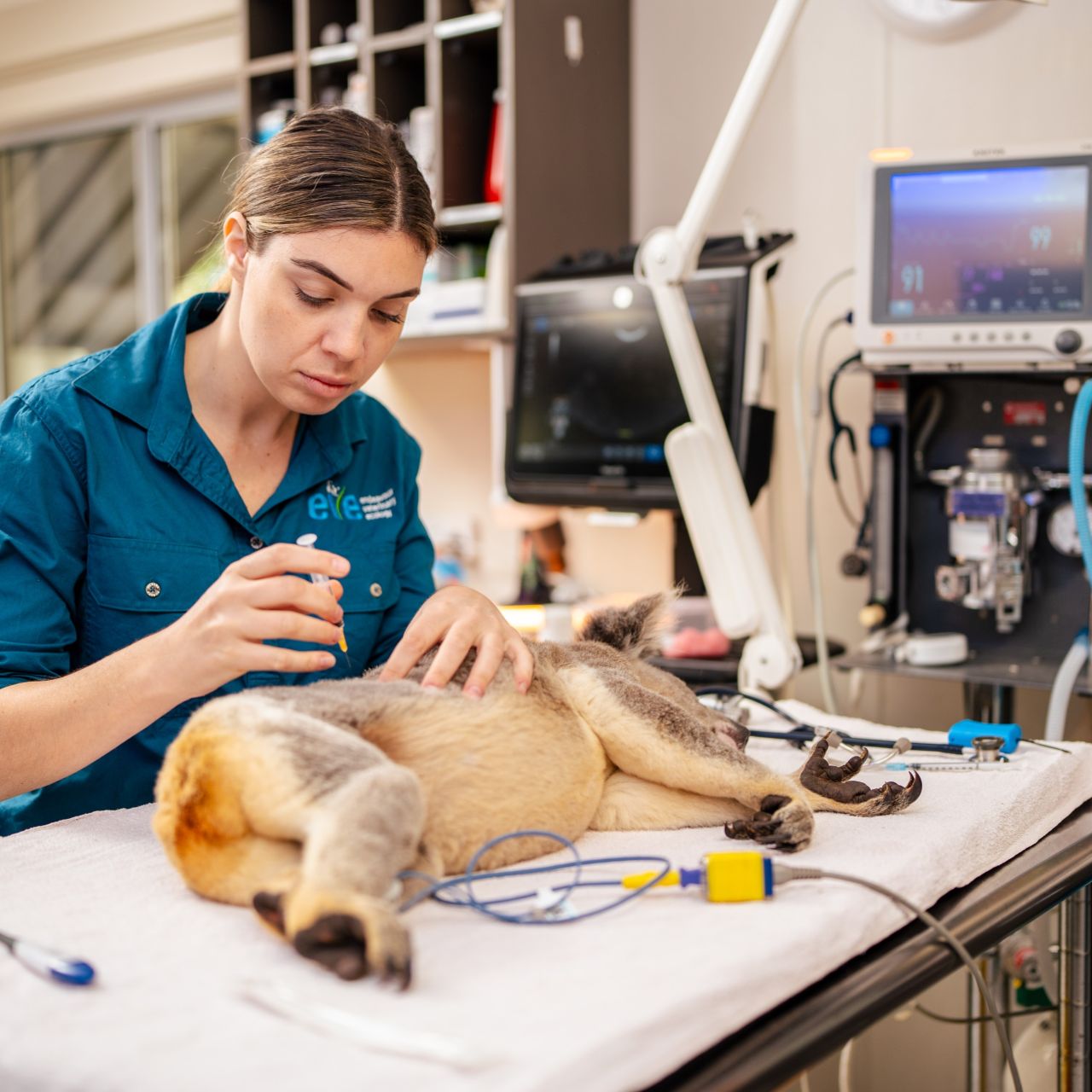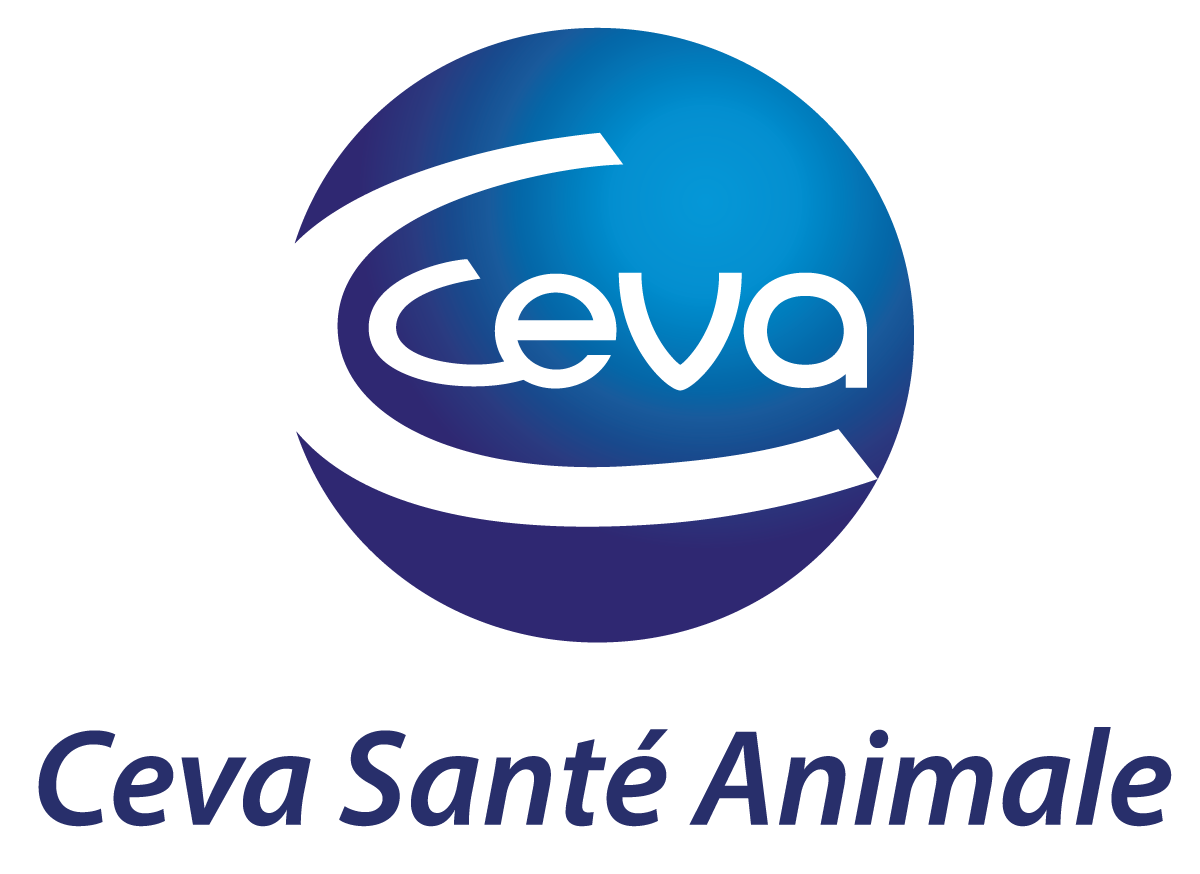World-first koala chlamydia vaccine approved- a project supported by Ceva Wildlife Research Fund

The project to vaccinate koalas against chlamydia has reached a decisive milestone, opening a promising new path for the conservation of this species. Australia has just approved the world’s first vaccine designed to protect koalas from this infection. Chlamydia can cause ainful urinary tract infections, infertility, blindness, and even death in koalas.
This approval, granted by the Australian Pesticides and Veterinary Medicines Authority (APVMA), marks a turning point in the fight for koala survival, particularly in Queensland and New South Wales, where infection rates reach up to 70%.

Developed over more than ten years by Professor Peter Timms and his team at the University of the Sunshine Coast’s Centre for Bioinnovation, the vaccine targets Chlamydia pecorum and provides protection on three levels:
- reduction of infection,
- prevention of progression to clinical disease,
- and in some cases, reversal of existing symptoms.
The results speak for themselves: a 65% reduction in chlamydia-related mortality in wild populations.
Until now, antibiotics were the only treatment option, which is not a sustainability solution for long term. The new vaccine offers a safer, more effective alternative that aligns with best practices in wildlife veterinary care.
Professor Peter Timms said :
“We knew a single-dose vaccine with no need for a booster was the answer to reducing the rapid, devastating spread of this disease.”
Ceva Wildlife Research Fund leveraged a complementary expertise to overcome hurdles to help bring the project to its final stages.
“Ceva Wildlife Research Fund takes great pride in supporting this work. This initiative transcends basic research; it represents a crucial intervention to safeguard endangered species and maintain ecological balance in Australia’s unique environments, serving as a model for similar conservation efforts worldwide” said Pierre-Marie Borne, Director of Ceva Wildlife Research Fund.
« Moreover, the vaccine’s design emphasises operational feasibility, requiring a single-dose administration, which is critical in wildlife management to minimise handling stress and logistical constraints for field teams,”
To learn more about this project :
